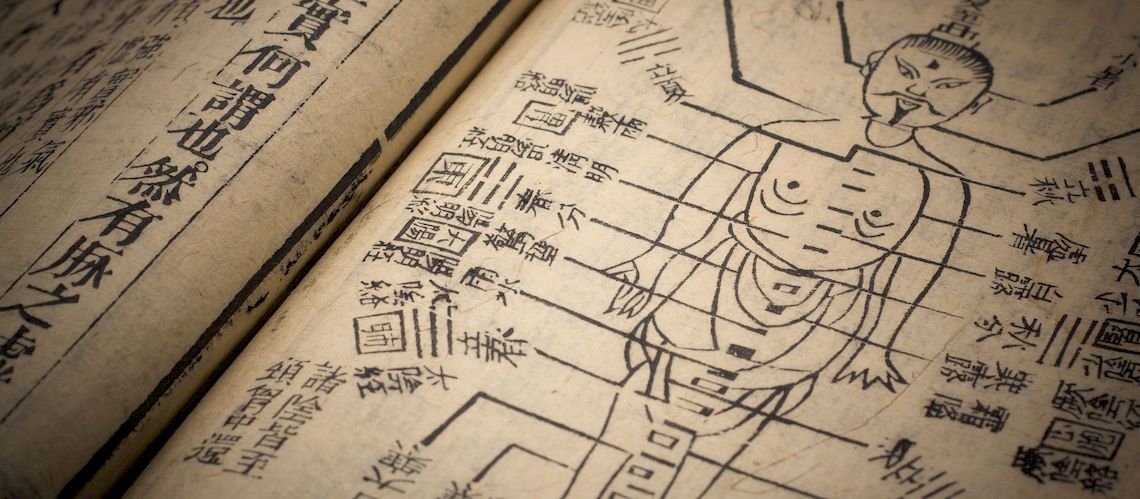Traditional Chinese Medicine (TCM) is a holistic medical system developed over 2,500 years, emphasizing the balance of Qi (vital energy) and the interconnectedness of the body, mind, and spirit. In the context of the Excellence Nexus Framework, which aims to help individuals achieve peak performance across Physical Peak, Mental Peak, Emotional Peak, Spiritual Peak, Prosperity Peak, and Impact Peak, TCM offers a comprehensive approach to optimizing well-being. Its therapeutic methods—including herbal medicine, acupuncture, moxibustion, and qigong—target the underlying imbalances in the body, promoting long-term health and helping individuals reach their highest potential (Xu et al., 2022; Xu et al., 2018; Kaptchuk, 2000).
Application in Excellence Nexus
- Physical Peak: TCM plays a crucial role in promoting physical vitality and preventing illness, which is fundamental to achieving peak physical performance. Acupuncture, herbal remedies, and moxibustion are frequently used to address imbalances that hinder physical health. By ensuring the smooth flow of Qi through the body’s meridians, TCM treatments restore and enhance physical energy, helping individuals maintain a high level of physical function. Studies have shown that TCM therapies are particularly effective in treating chronic conditions, such as cardiovascular diseases, which can impede physical vitality (Guo et al., 2022; Xu et al., 2018).
- Mental Peak: Achieving mental clarity and cognitive performance is essential for reaching the mental peak of the Excellence Nexus. TCM’s approach to cognitive health involves addressing both the physical and mental aspects of imbalance. Syndrome differentiation, a key diagnostic principle in TCM, ensures that treatments are tailored to the individual’s specific cognitive needs. By incorporating qigong, a practice that combines physical movement with mental focus, individuals can stimulate cognitive growth, enhance concentration, and promote mental clarity (Jiang et al., 2012; Kaptchuk, 2000). This holistic approach helps individuals unlock their full cognitive potential.
- Emotional Peak: Emotional resilience and stability are central to peak performance, and TCM offers several pathways to emotional balance. Acupuncture and herbal treatments help regulate the flow of Qi, alleviating stress, anxiety, and depression. TCM’s focus on harmonizing yin and yang promotes emotional equilibrium, allowing individuals to respond to life’s challenges with resilience. Studies have confirmed that TCM therapies are effective in reducing emotional tension and fostering mental well-being, contributing to emotional peak performance (Xu et al., 2018).
- Spiritual Peak: TCM addresses spiritual health by nurturing the connection between the body, mind, and environment. Qigong and other meditative practices are integral to achieving spiritual balance, which is essential for peak spiritual performance. In TCM, spiritual well-being is not separate from physical and emotional health; instead, it is viewed as part of an interconnected system. By practicing qigong or engaging in other TCM rituals, individuals cultivate a deeper connection with their inner selves, fostering spiritual harmony and peace (Xu et al., 2022; Kaptchuk, 2000).
- Prosperity Peak: Prosperity is often achieved through optimal mental and physical performance, and TCM provides tools to enhance both. By restoring balance and addressing underlying health issues, TCM treatments improve overall productivity and reduce burnout. In modern healthcare systems, TCM is increasingly used as a complementary therapy for managing conditions that can impact professional success, such as chronic pain and stress-related disorders (Guo et al., 2022). This supports individuals in maintaining the energy and mental clarity needed to pursue long-term prosperity.
- Impact Peak: Achieving the impact peak involves contributing meaningfully to society, which requires emotional resilience, physical health, and spiritual alignment. TCM promotes all of these aspects, empowering individuals to make significant, lasting contributions to their communities and fields of work. Through practices like qigong and acupuncture, TCM helps individuals maintain the physical and emotional stability needed to influence others positively and fulfill their potential for societal impact (Kaptchuk, 2000; Xu et al., 2022).
Benefits within Excellence Nexus
TCM offers benefits across all six domains of the Excellence Nexus Framework, helping individuals reach their highest potential:
- Physical Peak: TCM therapies restore physical vitality by addressing imbalances in Qi, enhancing overall health and preventing disease (Guo et al., 2022; Xu et al., 2018).
- Mental Peak: Practices like qigong promote mental clarity and cognitive development, helping individuals achieve sustained cognitive growth (Kaptchuk, 2000; Jiang et al., 2012).
- Emotional Peak: By harmonizing yin and yang, TCM therapies foster emotional resilience, helping individuals navigate stress and maintain emotional balance (Xu et al., 2018).
- Spiritual Peak: TCM nurtures spiritual well-being through practices that connect the body, mind, and environment, fostering a deep sense of peace and harmony (Xu et al., 2022; Kaptchuk, 2000).
- Prosperity Peak: TCM’s focus on balance and prevention helps individuals maintain physical and mental energy, enhancing productivity and supporting professional success (Guo et al., 2022).
- Impact Peak: By promoting holistic health, TCM empowers individuals to make meaningful contributions to society, maximizing their potential for positive impact (Xu et al., 2022; Kaptchuk, 2000).
How to Integrate TCM in the Excellence Nexus
To fully harness the benefits of TCM within the Excellence Nexus Framework, individuals can incorporate the following practices into their routines:
- Physical Peak: Incorporate acupuncture or herbal treatments to address physical imbalances and improve vitality. These therapies can help prevent illness and enhance physical energy (Guo et al., 2022).
- Mental Peak: Practice qigong regularly to stimulate both mental and physical energy, promoting clarity and cognitive performance. This integration of physical movement with mental focus fosters cognitive growth (Kaptchuk, 2000).
- Emotional Peak: Engage in regular acupuncture or qigong sessions to regulate the flow of Qi and maintain emotional stability. These practices reduce stress and promote resilience (Xu et al., 2018).
- Spiritual Peak: Cultivate spiritual harmony by practicing qigong or meditation. These practices align the body, mind, and spirit, fostering a deeper connection with the self and the world (Xu et al., 2022).
- Prosperity Peak: Use TCM therapies to manage chronic stress and improve physical and mental energy, supporting long-term professional success (Guo et al., 2022).
- Impact Peak: By maintaining emotional and physical health through TCM, individuals can expand their capacity to positively influence others and create lasting societal impact (Kaptchuk, 2000; Xu et al., 2022).
Conclusion
Traditional Chinese Medicine (TCM) aligns seamlessly with the Excellence Nexus Framework, offering a holistic approach to achieving peak performance across all six domains—physical, mental, emotional, spiritual, prosperity, and impact. Through its time-tested treatments and personalized care, TCM fosters balance, resilience, and well-being, helping individuals reach their highest potential and make meaningful contributions to their communities. By integrating TCM into daily life, individuals can optimize their health, enhance productivity, and achieve sustained excellence in all areas of life.
References
- Guo, X., Chen, X., Chen, J., Tan, Z., Yang, Y., & Zhang, H. (2022). Current status and evaluation of randomized clinical trials of traditional chinese medicine in the treatment of cardiovascular diseases. Evidence-Based Complementary and Alternative Medicine, 2022, 1-13. https://doi.org
- Jiang, M., Lü, C., Zhang, C., Yang, J., Tan, Y., Lü, A., … & Chan, K. (2012). Syndrome differentiation in modern research of traditional chinese medicine. Journal of Ethnopharmacology, 140(3), 634-642. https://doi.org
- Kaptchuk, T. J. (2000). The Web That Has No Weaver: Understanding Chinese Medicine. McGraw-Hill Education.
- Tian, Z., Wang, D., Sun, X., Fan, Y., Guan, Y., Zhang, N., … & Wang, H. (2023). Current status and trends of artificial intelligence research on the four traditional chinese medicine diagnostic methods: a scientometric study. Annals of Translational Medicine, 11(3), 145-145. https://doi.org
- Xu, H., Zhang, Y., Liu, Z., Chen, T., Lv, C., Tang, S., … & Huang, L. (2018). Etcm: an encyclopaedia of traditional chinese medicine. Nucleic Acids Research, 47(D1), D976-D982. https://doi.org
- Xu, R., Mu, T., Liu, Y., Ye, Y., & Xu, C. (2022). Trends in the disparities and equity of the distribution of traditional chinese medicine health resources in china from 2010 to 2020. Plos One, 17(10), e0275712. https://doi.org




